What we learn together
From Skepticism to Celebration: How We Engage Community Members in Each Water Project
Our interactions with community members sit at the heart of The Water Project’s mission to provide clean and safe water to communities in need. During each interaction, we continuously strive to uphold three values: reliability, relationship, and trust.
In this blog post, we share insights from our dedicated field officers from all across our Kenyan service areas on what community engagement looks like to them in their day-to-day duties. Field officers make our first contact with community members and then coach them through each step of the water source installation process, which makes their jobs incredibly important and, as you’ll read, incredibly rewarding.
First Impressions
Upon arrival in a new community, our team members introduce themselves, explain their roles within The Water Project, and outline the purpose of their visit.
Because we extensively vet a community and its water needs before we consider building a water project there, community members may meet with our staff members multiple times before we communicate any plans to build a water project in their community.
“Upon entry into a new community, we get to interact and understand/learn the community better,” said Titus Mbithi, a Community Engagement Officer in our Southeast Kenya service area. “Staff introduce themselves by names and their roles within the organization. They also present the thematic areas of focus for the organization. People are welcoming in our project areas.”
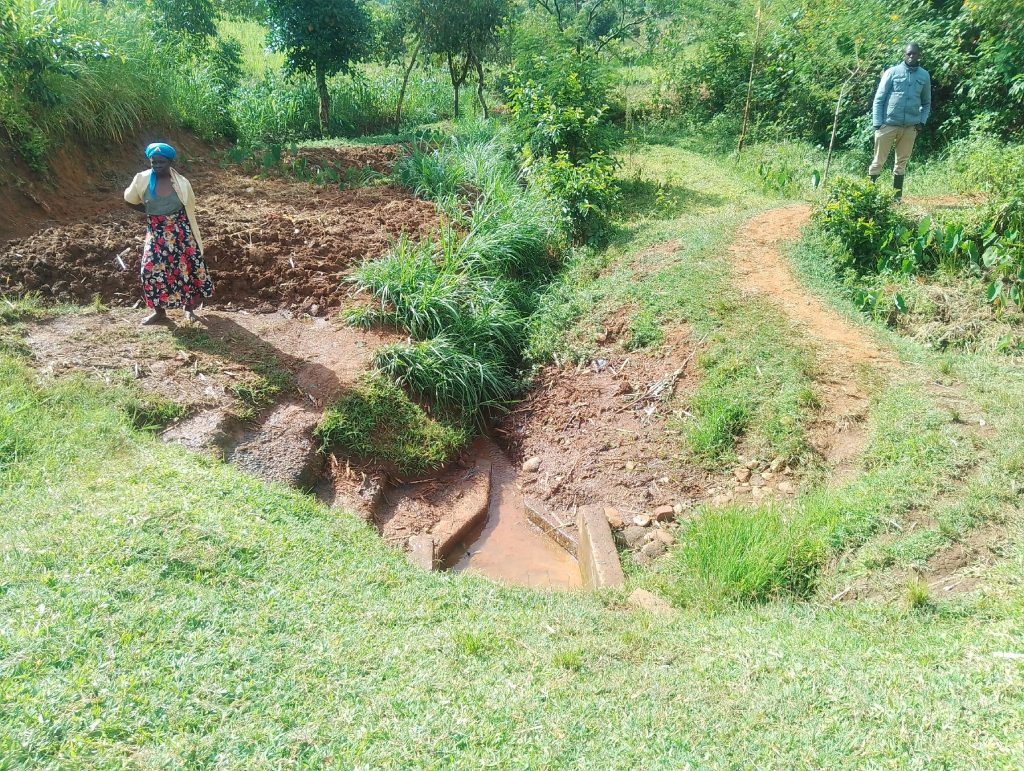
“We have been working in these communities for a [long] period of time,” explained Adelaide Nasimiyu, who works in Western Kenya. “Most of the local leaders know us. So when we enter a community, we introduce ourselves, the organization we work with, and why we have visited that community on that particular day. Most of these communities are so welcoming and friendly.”
But it’s not always so easy, as Field Officer Mercy Odongo from Western Kenya explained.
“We enter the community with enthusiasm because we do not know what to expect,” Mercy said. “But we are always optimistic while expecting resistance at the same time. Communities are different; some will be ready to create a relationship with us, some will be reluctant, and some will say no. Let’s say two out of ten [will] be having doubts about the project happening. But [in] the end, the need usually wins. [The] majority of the people are usually optimistic that the project will happen.”
Announcing a Water Project
Informing the community about an upcoming water project is a pivotal moment. Vetting and verifying a project takes a long time. In addition to studying an area’s topography and population, field officers also present a “project proposal” outlining the community’s water situation for approval by our management team.
“When we have done vetting and come to [the] conclusion that, indeed, this community is in need of water and their reliable source is open to contamination or the reliable source is [a] distance away, we go back to this community to do a [project] proposal that will enable this community get clean water,” shared Adelaide.
As Field Officer Joy Ongeri from Western Kenya explained, this necessarily long process can sometimes take a year or longer, and some community members may become impatient with us.
“Some communities are skeptical because of [the project] proposals,” Joy said. “[Our] time of engagement just before the time of [a project’s] implementation is quite long, making them [think] we have left them. But they become hopeful and eager when it gets near to implementation.”
“Before sharing the good news to the community, it is my duty to ensure that the project has received all necessary approvals from the relevant authorities,” said Joyce Naliaka, who works in our Western Kenya service area. “Most of them tend to celebrate on hearing the news, however, communities consist of diverse groups of people with mixed opinions. Some of them are usually skeptical due to failed previous projects from other organizations.”
This process takes a while because we want to avoid installing a project that doesn’t work as intended or doesn’t serve the community well. As a result of this careful approach, we rarely decommission any of our water points.
Construction Begins
All doubts about our intentions disappear once construction materials appear.
“They welcome the materials with song and a dance, as it signifies an important milestone in realizing the water project,” said Titus.
“The community becomes really excited [during this time] because their wishes and hopes have come near to being fulfilled,” Adelaide added. “They are so eager to see the construction to start at this moment. They believe, and [to them], it’s no longer empty promises.”
For some community members, the construction period offers them a chance to help create their own water solution. For instance, in Southeast Kenya, community members construct their own sand dams and shallow wells right alongside the construction artisans.
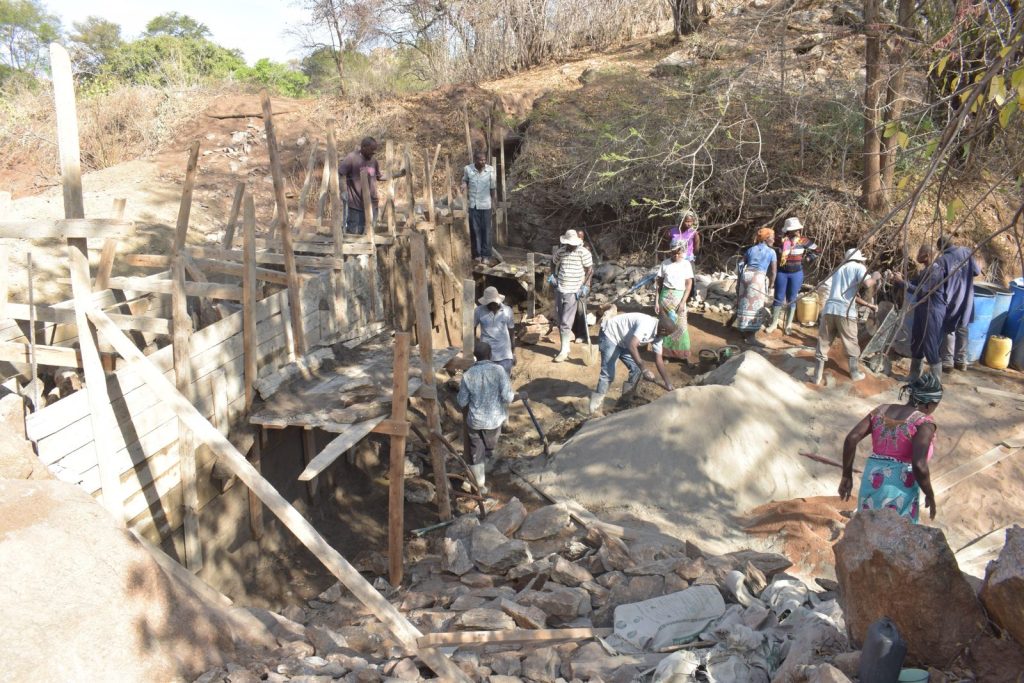
“Upon [the] actual start of the project implementation, most of the community members are involved on a daily basis to fast track the process,” Titus explained.
Conversely, community members in Western Kenya help source construction materials like stones and gravel for their protected spring projects. They then help prepare the site toward the end of the construction process.
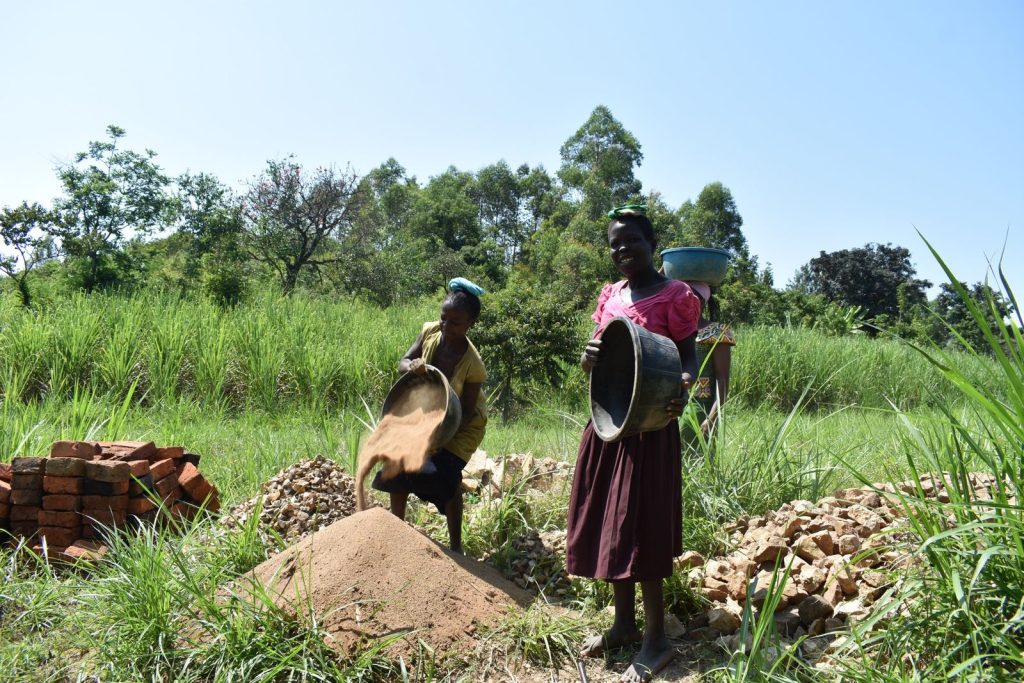
“Before we send the artisan to that community, we sit down with the water users and agree that they will contribute the locally available materials,” said Adelaide. “Most of the communities agree with these requirements, and so when the construction is in process, they provide what is required, and they voluntarily help the artisan in the construction process.”
“Most of the community members get overjoyed to have the pleasure to help out and see how the construction is done,” said Joy.
“Some, also, are always busy preparing food for the people involved,” added Mercy.
Celebration Time!
Once a water point’s construction is complete, it’s time for everyone to express their joy through a celebration or even a dedication/handing-over ceremony, where field officers will symbolically “hand over” the water point to the community members officially.
“After the water point is completed, we assemble all the beneficiaries of the water point to be part of the celebration,” Adelaide said. “In the celebration, we normally have the local leadership to help us in the maintenance of the water point.”
“The community members usually gather around singing songs of praise and dancing with joy as we dedicate the water point,” said Mercy. “There is normally joy, a joy that can be felt even without words being spoken.”
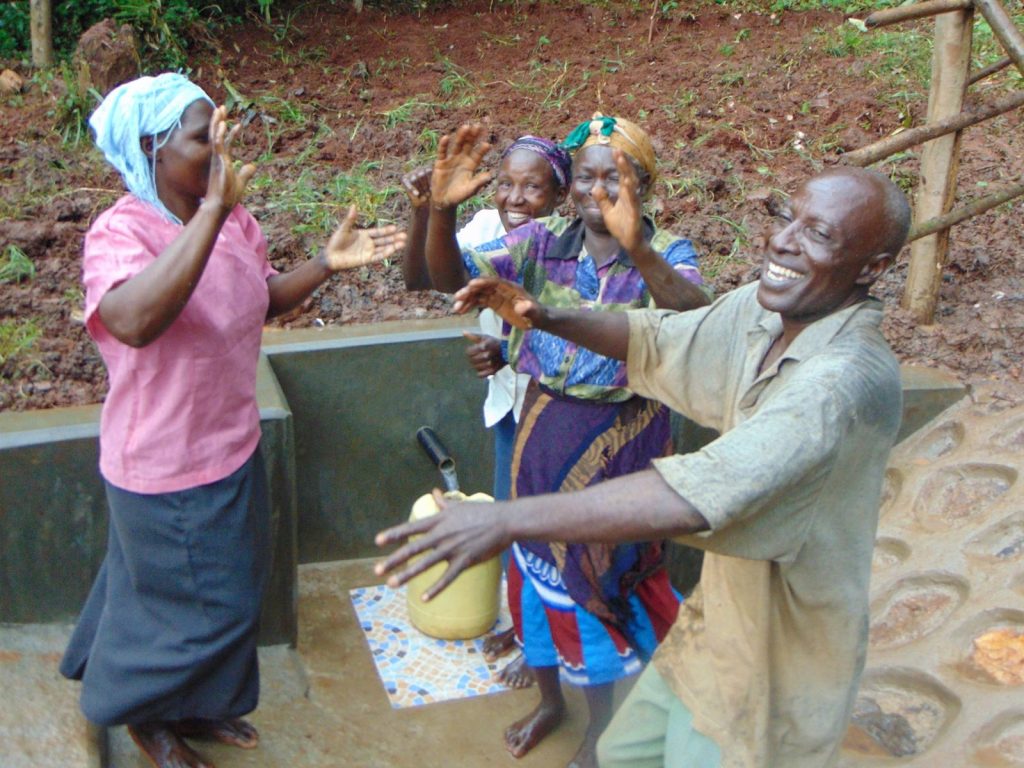
“Some communities usually celebrate through singing and dancing, acknowledging, and sending appreciation messages to our organization,” added Joyce.
Support and Monitoring
One thing that sets us apart from some water organizations is our commitment to communities, which extends beyond project completion.
Community members can contact us with any issues. Once a water source has been constructed, our quarterly monitoring visits and water quality testing protocols begin. And it’s often the same field officers who collect the water samples for testing — at the same time, catching up with the community members.
“Most of the communities are always happy to see us now and then,” said Mercy. “They normally say that most people give [them] things, but they never come back to check on [them], but The Water Project does. Even three years later, they still talk about the water point with so much appreciation and joy. They even go to the extent of showing us what it is doing for them, especially when it comes to agriculture.”
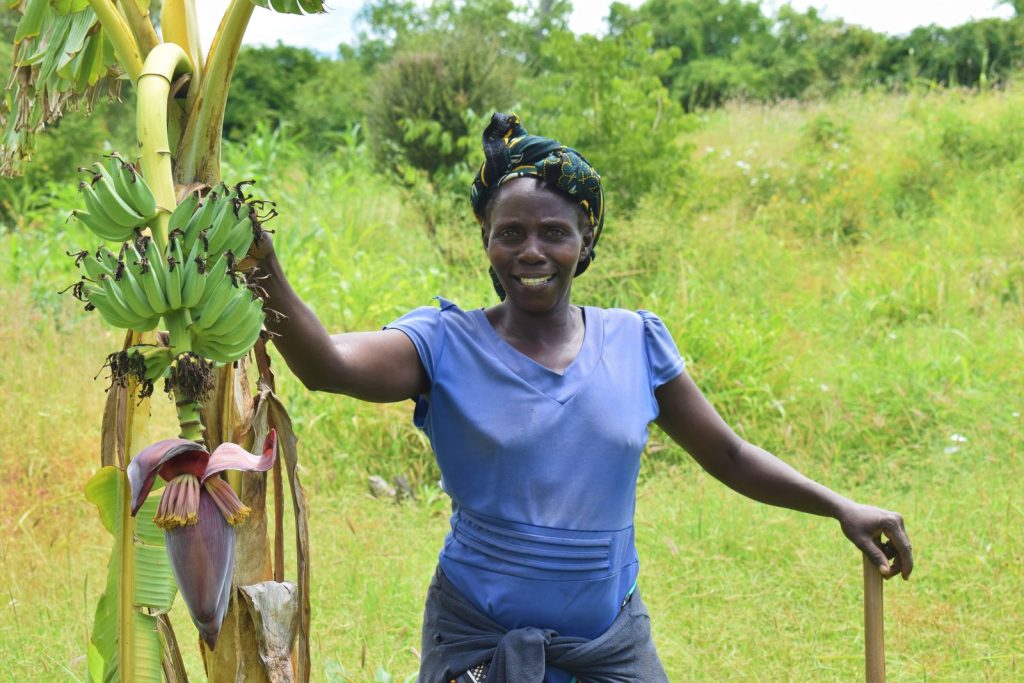
“After the construction of the water point, the community members, especially the water user committee, have our contacts,” said Adelaide. “If there is any issue, they are free to talk to us. We send out our operation and maintenance team to handle the issue.”
Conclusion
By building strong relationships with the people we serve, we ensure the sustainability and success of our projects. These stories from our field officers illustrate the depth of our commitment to community engagement and the transformative impact it has on the lives of those we serve. However, we can’t do it alone. Your support is crucial in helping us continue this vital work.
When you donate to The Water Project, you become part of a community that values reliability, relationships, and trust. Your generous gifts bring clean and safe water to those in need and empower communities to take charge of their future. Join us in transforming skepticism into celebration and making a lasting difference.
Donate today and join our mission to provide clean water and hope to communities in need. Together, we can ensure that no community in our service areas will ever suffer from the burden of drinking unsafe water again.
Home More Like ThisTweet